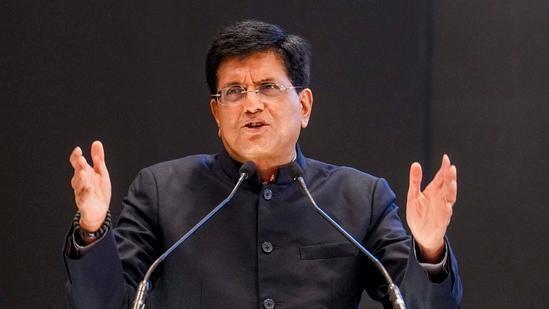
We’ll Have Speed, Not Haste: Goyal as India & UK Resume FTA Talks
In a significant development, India and the United Kingdom have decided to restart negotiations for a free-trade agreement (FTA). The move comes after a meeting between Union Minister of Commerce Piyush Goyal and UK Business and Trade Secretary Jonathan Reynolds. In a statement, Goyal expressed optimism about the prospects of concluding a good agreement, but emphasized the need for speed without haste.
The announcement has sent a positive signal to businesses and industries on both sides, which have been eagerly awaiting the resumption of talks. The FTA has the potential to boost bilateral trade and investment, and could be a major driver of economic growth for both nations.
Goyal’s cautious optimism is reflected in his comments on the timeline for concluding the agreement. When asked if an FTA could be expected by this year, he said, “It’s never too late to conclude a good agreement… We’ll have speed, but not haste.” This approach suggests that the Indian government is prioritizing the quality of the agreement over the speed of its conclusion.
The decision to restart FTA talks is a welcome development, especially in the context of the ongoing global economic uncertainty. The COVID-19 pandemic has had a significant impact on international trade, and many countries are looking for ways to boost their economies. An FTA between India and the UK could be a major step in this direction.
The two countries have been negotiating an FTA since 2017, but talks have been slow-going due to differences over issues such as tariffs, rules of origin, and intellectual property rights. However, both sides have been working to bridge these gaps, and it appears that they are now closer to an agreement.
India and the UK have a significant trade relationship, with bilateral trade totaling over $24 billion in 2020-21. The UK is one of India’s largest trading partners in the EU, and India is the UK’s 10th largest trading partner globally. An FTA could help to increase trade between the two countries, and could also attract new investments from the UK.
The FTA is also expected to have a positive impact on Indian exports to the UK. Indian industries such as textiles, pharmaceuticals, and automobiles could benefit from reduced tariffs and other trade facilitation measures. Additionally, the agreement could help to promote Indian services such as IT, financial services, and tourism in the UK market.
The UK’s departure from the EU, commonly referred to as Brexit, has also created new opportunities for India. The UK is no longer bound by EU trade agreements, and is now free to negotiate its own trade deals. An FTA with India could be a key part of the UK’s post-Brexit trade strategy.
In addition to the economic benefits, an FTA between India and the UK could also have significant diplomatic and strategic implications. The two countries have a long history of cooperation on issues such as counter-terrorism, non-proliferation, and climate change. An FTA could be a symbol of their strong bilateral relationship, and could help to promote cooperation on these and other issues.
In conclusion, the decision to resume FTA talks between India and the UK is a significant development that could have major economic and diplomatic implications. While there are still challenges to overcome, the optimism expressed by Goyal suggests that both sides are committed to concluding a good agreement. As the negotiations progress, it will be important to ensure that the agreement is fair and balanced, and that it promotes trade and investment between the two countries.
Source:






